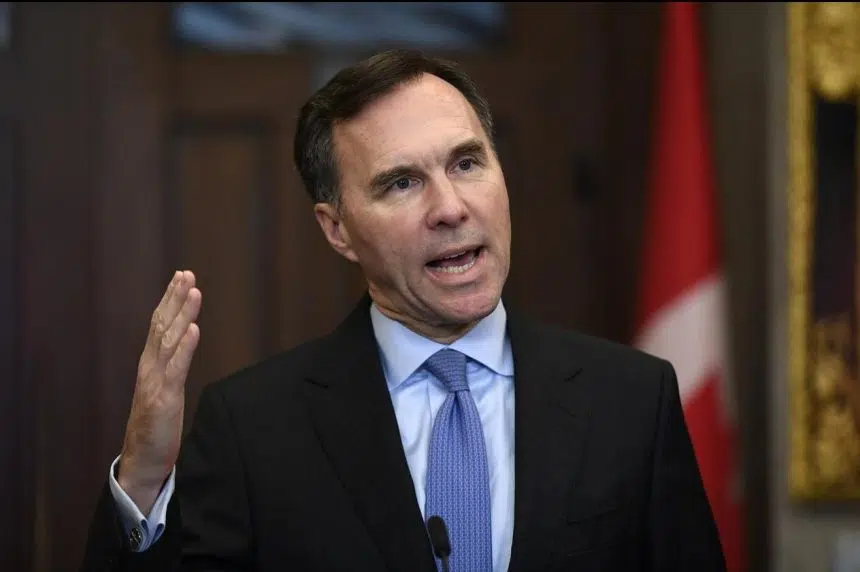MONTREAL – By continuing to post deficits with no clear deadline for a return to balanced budgets, Ottawa is pursuing a risky strategy that could leave a steep bill for future generations, according to a study by HEC Montreal’s Centre for Productivity and Prosperity.
In an analysis released Wednesday, the authors concede that the federal government’s decision to run deficits from 2015 to 2018 to stimulate growth was a winning one. However, they say the situation has since changed.
“Economic growth is relatively good and there is no recession in sight,” HEC professor Robert Gagne said in a phone interview. “Labour market indicators are favourable. If these aren’t the conditions for achieving a balanced budget, what will it take?”
Taking into consideration accounting adjustments, the centre’s study estimates the federal government amassed cumulative deficits of $56.5 billion between 2015 and 2018.
With Finance Minister Bill Morneau set to table the next budget in March, Gagne believes now is the time for Ottawa to commit to rebalancing public finances. In his opinion, this could be achieved by limiting spending growth to inflation.
In an economic update last month, Morneau projected a deficit of $26.6 billion, some $7 billion more than forecast in the last budget.
And the next deficit is expected to swell to $28.1 billion for 2020-21, before gradually decreasing to hit $11.6 billion in 2024-25.
The Liberal government has justified its approach by emphasizing the fact that, despite spending that exceeds revenues, the debt-to-GDP ratio is expected to gradually decline to 29.1 per cent by 2024-25 – the lowest since 2008-09.
Nevertheless, according to forecasts from the economic update, the federal debt should reach $713 billion at the end of the current fiscal year and grow to $810 billion by 2024-25.
Without being alarmist, Gagne says the current strategy implies that the federal government believes it can “indebt itself indefinitely.”
For the moment the impact is limited. Debt servicing represented just seven per cent of federal revenues in 2018, which is low compared to the mid-1990s, when this single item accounted for more than a third of government revenues, the study states.
But at some point, interest rates won’t be as low as they are today, according to the authors, who conclude that future generations will have to pay the bill.
“All it will take is a few percentage points (increase), and the situation could deteriorate quite quickly,” Gagne said. “For the moment, the indicators are quite favourable, but that won’t last. The day an economic shock occurs, we’ll have bought ourselves trouble by accumulating a more-or-less useless debt.”
According to the study, a return to 2006 borrowing conditions for the federal government would be enough to see the debt service burden rise to $1,567 per capita, up $940 from the current average.
Therefore, a sudden rise in interest rates could “possibly jeopardize intergenerational equity,” according to the document.
“In addition to passing part of today’s bills on to future taxpayers, Ottawa is unduly increasing their risk exposure by accumulating deficits, to the point where tomorrow’s taxpayers might be unable to enjoy the same services if interest rates were to increase significantly or if the Canadian economy experienced a serious economic crisis,” the study read.
Among its recommendations, the study suggests Parliament should bring back the Federal Balanced Budget Act adopted in 2015 and repealed one year later by the new government.
Julien Arsenault, The Canadian Press











